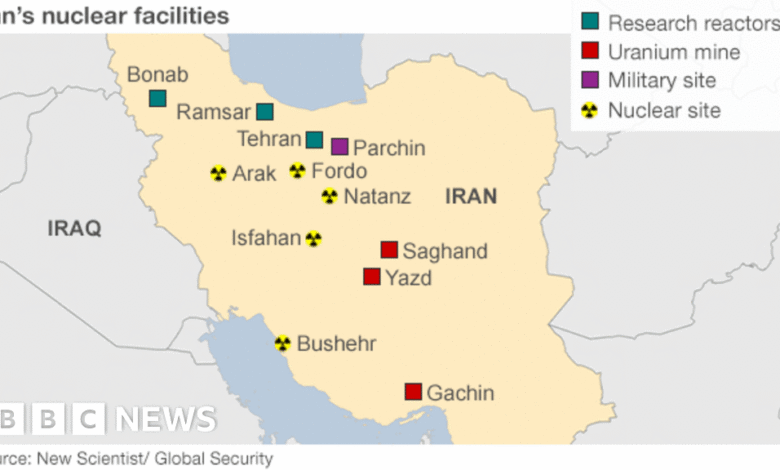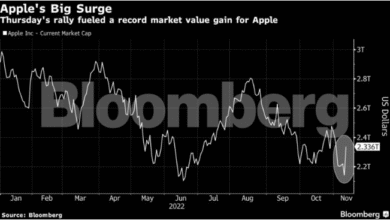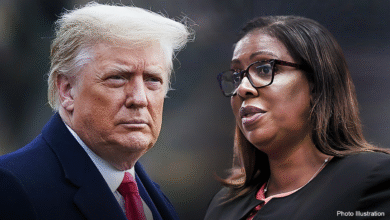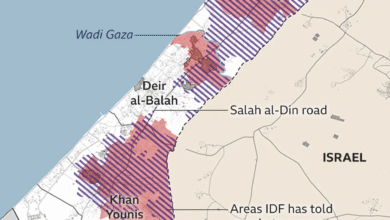U.S. Attack on Iran Nuclear Sites: Global Leaders React

The recent U.S. attack on Iran nuclear sites has sent shockwaves through the international community, igniting intense debate among world leaders and experts alike. Following President Donald Trump’s announcement of a “very successful attack” on key sites like Fordo, the prospect of further escalation in the Iran conflict has become a pressing concern. Trump heralded this moment as historic, proclaiming that Iran must now seek peace through strength – a principle he and Israeli Prime Minister Benjamin Netanyahu have consistently advocated. However, while some leaders praise this decisive military action, others, including UN Secretary-General Antonio Guterres, warn of the potential for catastrophic consequences in an already unstable region. As diplomatic efforts are called for by several nations, the global response to America’s aggressive stance toward Iran remains uncertain and complex.
In a dramatic shift in geopolitical dynamics, the U.S. military’s decision to target Iranian nuclear facilities marks a significant development in international relations. The strategic bombing of Iran’s vital nuclear sites, labeled as a vital step in mitigating nuclear threats, has been framed by U.S. officials as a necessary measure against an aggressor state. As global leaders assess the implications of this military intervention, various calls for restraint and international dialogue have emerged, emphasizing the delicate balance of power in the Middle East. Amidst escalating tensions, discussions about peace negotiations and diplomatic concerns have surfaced, highlighting the urgent need for a resolution to the rising conflict. Observers around the world are closely monitoring the situation, as the fallout from these striking actions could redefine international policies and alliances.
U.S. Attack on Iran Nuclear Sites: A Historic Moment or a Dangerous Escalation?
On Saturday, President Donald Trump announced the United States’ successful military operation targeting three nuclear sites in Iran, including the notorious Fordo facility. This move has been described as a ‘historic moment’ not only by the President but also by allies such as Israeli Prime Minister Benjamin Netanyahu. The implications of these airstrikes are monumental, as they could signal a decisive shift in U.S. foreign policy towards Iran. The administration’s rationale emphasizes a strategy of ‘peace through strength,’ suggesting that a show of military force may compel Iran to reconsider its nuclear ambitions and advance negotiations for peace.
However, reactions from the international community are mixed, fostering concerns about further conflict. United Nations Secretary-General Antonio Guterres labeled the attack a dangerous escalation in a tense region. He warned that such aggressive actions risk inflaming an already volatile situation, creating potential catastrophic consequences for not just the region but the entire globe. Nations that prioritize diplomacy, including Mexico, voiced the need for dialogue rather than military intervention to assure peace and stability.
While Trump and his supporters herald the strikes as a necessary step to counteract Iran’s nuclear ambitions, the global community appears deeply divided. For some, the strikes symbolize a bold and pragmatic approach to thwarting nuclear proliferation; for others, they represent an aggressive tactic that could ignite broader conflict. The complexities of the Iran conflict and the differing opinions on military actions versus diplomatic resolutions underscore a critical dilemma for international relations.
As Trump’s announcement reverberates through diplomatic circles, the focus shifts to how different countries will respond in the days to come. Iran has often stated that it views any attack on its sovereignty as an act of war, raising the stakes in an already tense geopolitical landscape. Observers will be watching closely to see if this attack will ultimately lead to a de-escalation of tensions in the Middle East, or thrust the region into a deeper conflict.
International Reactions to the U.S. Military Action Against Iran
The international response to the U.S. airstrikes on Iranian nuclear sites has been overwhelmingly critical, with leaders from multiple nations condemning the military action. Venezuelan Foreign Affairs Minister Yvan Gil issued a staunch rebuttal, stating that Venezuela stands firmly against what they termed ‘U.S. military aggression.’ This reflects a broader sentiment among nations that perceive the strikes as not just an attack on Iran but an infringement on international law and global peace.
Cuba’s President Miguel Diaz-Canel also condemned the attack, suggesting that actions such as these only serve to escalate existing tensions and violate established principles of sovereignty. These international reactions illustrate a significant divide in global politics, where many leaders advocate for restraint and diplomacy over military action. The push for dialogue echoes through statements made by Mexican officials, who have emphasized the urgent need to de-escalate tensions to avoid a larger conflict and its dire consequences.
The contrasting perspectives highlight a critical juncture in U.S.-Iran relations—while some allies champion the strength shown through military means, many global leaders fear that such actions could trigger a broader conflict with far-reaching implications. The call for diplomatic approaches by leaders across Latin America, Asia, and Europe underscores a collective desire for sustainable peace rather than temporary military solutions.
As conversations unfold within the United Nations and other diplomatic forums, the consensus appears to lean towards finding common ground through negotiations. The world watches closely as it seeks to understand whether this military strike will lead to renewed talks or whether it will spiral into a full-fledged confrontation.
The Strategy of ‘Peace Through Strength’ in U.S.-Iran Relations
Central to Trump’s declaration of the U.S. airstrikes on Iranian nuclear sites is the strategy termed ‘peace through strength.’ This philosophy suggests that displaying military might can deter adversaries and lead to peaceful resolutions. In the current context, this approach reflects a stark departure from previous diplomatic efforts, focusing instead on a demonstration of U.S. resolve to ensure Iran’s compliance with international norms regarding nuclear weapons. Proponents believe that showing a willingness to act decisively may sway Iran towards negotiations.
Critics, however, argue that this strategy risks entrenching animosities rather than fostering a conducive environment for dialogue. The fear is that increased military posturing will not elicit compliance from Iran but rather provoke a cycle of retaliation and escalation, potentially leading to war. The situation poses a fundamental challenge for U.S. policymakers, who must balance rhetoric with sound strategies that prioritize safety and peace in the region.
Moreover, this tactic raises questions about the effectiveness of military interventions in resolving long-standing disputes. Historical precedents have shown that military action often begets further conflict instead of lasting solutions. The focus on strength has been criticized as a simplistic response to the intricate web of relationships and conflicts in the Middle East.
Ultimately, whether or not ‘peace through strength’ can effectively address the Iranian nuclear issue remains contentious. The path forward necessitates careful consideration of both military and diplomatic strategies that align with a longer-term vision of stability in the region.
The Implications of Escalating Conflict in the Middle East
The recent U.S. attack on Iranian nuclear sites marks a potential turning point in Middle Eastern geopolitics, with implications that could reverberate globally. The escalation risks shattering any semblance of stability in the region, as countries brace for possible retaliatory measures from Iran. Analysts are particularly concerned about the broader impacts on energy markets, regional security dynamics, and the potential for humanitarian crises stemming from a renewed conflict.
With Iranian leaders promising retaliation and international allies solidifying their positions, the geopolitical landscape is becoming increasingly fraught. Countries such as South Korea are already convening emergency meetings to assess how these developments may impact their security and economic interests. The fear of spiraling violence could lead to widespread instability as nations navigate the delicate balance of responding to aggression while seeking to avoid outright war.
Furthermore, ramifications for international alliances may also be profound, as nations reassess their positions in solidarity with either the U.S. or Iran. This could lead to fractures in long-established partnerships, depending on how the situation evolves. How the U.S. navigates this escalation, including the potential for further military action or a shift towards diplomacy, will be crucial in shaping future relations in the Middle East and beyond.
As the world watches the aftermath of the strikes and the responses from both Iran and its allies, the need for a diplomatic pathway becomes increasingly evident. Avoiding a full-blown conflict will require leaders to prioritize communication, understanding, and cooperation amid a climate of fear and uncertainty.
The Role of Global Leaders in Mitigating the Iran Crisis
In the wake of the U.S. airstrikes on Iran, global leaders have a pivotal role to play in de-escalating tensions and finding a path forward. With nations like Venezuela and Cuba condemning the attacks, their positions underscore the critical need for a united international front advocating for diplomacy over military intervention. As countries convene to discuss the implications of heightened tensions, figures like U.N. Secretary-General Antonio Guterres emerge as crucial advocates for peace and conflict resolution.
Guterres has been vocal in underscoring the danger of the current escalation and the need for immediate diplomatic engagement to prevent further confrontation. His call for dialogue resonates across various platforms, aiming to unite nations behind a collaborative approach that prioritizes peace and stability in the region. The role of global leaders is not solely to denounce actions but to actively propose viable solutions that mitigate the fallout from military actions and foster a constructive dialogue.
Additionally, countries like Mexico are taking a proactive stance, urging for diplomatic dialogue, reflecting a growing consciousness among global leaders about the importance of diplomacy in crisis resolution. As the conflict escalates, the significance of such leadership cannot be overstated; it lays the groundwork for diplomatic initiatives that could steer the international community towards lasting peace.
In conclusion, the expectations for global leaders to navigate the current crisis effectively are immense. Their ability to foster communication, encourage diplomatic relations, and mitigate tensions will significantly influence the trajectory of the Iran situation and its wider repercussions in international relations.
Historical Context of U.S.-Iran Relations
The U.S.-Iran relationship has a long and complex history characterized by periods of both cooperation and intense conflict. Originating from the overthrow of the Iranian Prime Minister Mohammad Mossadegh in 1953 and the subsequent support for the Shah’s regime, relations soured further after the 1979 Iranian Revolution, leading to the severing of diplomatic ties. The ideological chasm has since widened, especially following events such as the Iran-Iraq War and accusations of Iran’s support for groups labeled as terrorists by the U.S.
These historical events set the stage for the current tensions, with the nuclear program of Iran emerging as a focal point of international concern. The strife surrounding nuclear negotiations, particularly during the Obama administration, saw efforts towards diplomacy that aimed at curbing Iran’s nuclear ambitions. However, the shifting strategies signaling a return to military responses under the Trump administration complicate the narrative, raising questions about the trajectory of future U.S.-Iran relations.
As foreign policy experts analyze the implications of recent actions, understanding this historical context is essential to frame the current crisis within a broader continuum. The challenge remains: can pathways toward resolution be established that acknowledge the historical grievances while paving the way for a peaceful solution?
Moving forward, examining the past can provide insight into potential strategies and highlights the importance of diplomatic avenues that have been historically effective. A comprehensive analysis of U.S.-Iran relations may yield crucial lessons for navigating today’s conflicts, facilitating a more stable and peaceful future.
Future of Diplomatic Solutions in U.S.-Iran Conflict
The U.S. attack on Iranian nuclear sites, while perceived by some as a necessary act of strength, raises significant questions about the future of diplomatic efforts aimed at resolving tensions with Iran. With numerous global leaders calling for a return to dialogue, the focus now shifts to how effective diplomacy can be re-established in the wake of military action that could alienate Iran further. The consensus among many analysts is that a purely military solution is unlikely to yield lasting peace, emphasizing the urgency for diplomatic channels to reopen.
Discussions about potential nuclear negotiations highlight the need for a framework that accommodates both security concerns and the geopolitical realities that have historically influenced U.S.-Iran relations. While the notion of ‘peace through strength’ suggests that military pressure can bring parties to the negotiating table, history shows that successful diplomacy often requires a mix of incentives and guarantees that promote cooperation rather than conflict.
As countries like Mexico and various European nations advocate for diplomacy, the groundwork is laid for renewed discussions that could, ideally, lead to a new understanding between the U.S. and Iran. It is through these diplomatic efforts that leaders may seek to mitigate the cycle of violence and move toward a comprehensive approach that ensures regional stability.
Ultimately, the future of U.S.-Iran relations hinges on a collective commitment to dialogue and a recognition that military might alone cannot resolve deeply rooted issues. The pathway to peace demands innovative diplomacy that acknowledges historical grievances while creating opportunities for mutual respect and understanding.
Frequently Asked Questions
What is the significance of the U.S. attack on Iran nuclear sites following Trump’s announcement?
The U.S. attack on Iran nuclear sites is seen as a pivotal event in international relations, marking a dramatic escalation in the Iran conflict. President Trump described it as a ‘historic moment’ aimed at compelling Iran to cease hostilities.
How do world leaders view Trump’s announcement on the U.S. military action against Iran’s nuclear facilities?
Reactions varied widely; Israeli Prime Minister Netanyahu supported Trump’s announcement, asserting that it reflects ‘peace through strength.’ However, UN Secretary-General Antonio Guterres warned of potential global security threats from this escalation.
What were the immediate global reactions to the U.S. attack on Iran nuclear sites?
The international response included strong condemnations from countries like Venezuela and Cuba, which criticized the U.S. attack as illegal and called for diplomatic resolutions to the Iran conflict to avoid further escalation.
How might the U.S. attack on Iran’s nuclear sites impact international diplomacy?
The U.S. attack is likely to complicate international diplomacy regarding Iran, as many leaders emphasize the need for dialogue to de-escalate tensions, contrasting sharply with military actions that threaten regional stability.
What does the phrase ‘peace through strength’ represent in the context of the U.S. attack on Iran nuclear sites?
‘Peace through strength,’ as articulated by leaders like Netanyahu and Trump, suggests that military readiness and decisive action, such as the U.S. attack, can lead to diplomatic solutions and long-term peace, although this perspective is heavily debated.
What are the potential consequences of the U.S. strike on Iran nuclear sites for global security?
The U.S. strike could heighten tensions not only in the Middle East but also globally, as expressed by leaders like Guterres, who warned of a risk of broader conflict and its catastrophic impacts on civilians and regional stability.
What is the position of Venezuela on the U.S. military actions regarding Iran’s nuclear sites?
Venezuela has condemned the U.S. military aggression, calling for an immediate cessation of hostilities, which underscores the conflict’s potential to rally opposition from nations traditionally aligned against U.S. foreign policy.
How has the U.S. attack on Iran influenced global emergency diplomatic meetings?
Countries such as South Korea are convening emergency meetings to discuss the implications of the U.S. attack on Iran nuclear sites, indicating a proactive approach to manage the fallout and reassess international security strategies.
| Key Point | Details |
|---|---|
| U.S. Attack on Iran Nuclear Sites | President Trump announced the U.S. had conducted a successful attack on three Iranian nuclear sites, including Fordo. |
| Reactions from World Leaders | Israeli PM Netanyahu praised the attack as historic while UN Secretary-General Guterres warned of dangerous escalation. |
| Support from Israel | Netanyahu emphasized ‘peace through strength’ and supported Trump’s actions. |
| Condemnation of the Attacks | Leaders from Venezuela and Cuba condemned the U.S. strikes, calling them violations of international law. |
| Call for Diplomacy | Mexico’s Ministry of Foreign Affairs and others advocated for diplomatic dialogue to resolve tensions. |
| Global Implications | Countries like South Korea have begun emergency meetings to assess the implications of the U.S. attack. |
Summary
The U.S. attack on Iran nuclear sites marks a significant escalation in tensions in the Middle East. With President Trump heralding it as a historic moment, world leaders have reacted with a mix of support and condemnation. While Israel applauds the actions as a powerful step towards peace through strength, leaders like UN Secretary-General Antonio Guterres express concerns over potential global ramifications. The call for diplomatic engagement remains crucial, as many nations fear the consequences of escalating conflict. The situation underscores the need for careful navigation in international relations and the importance of prioritizing peace.




